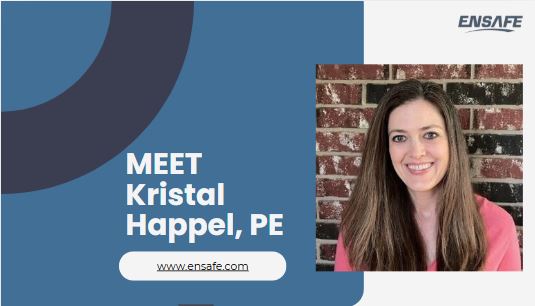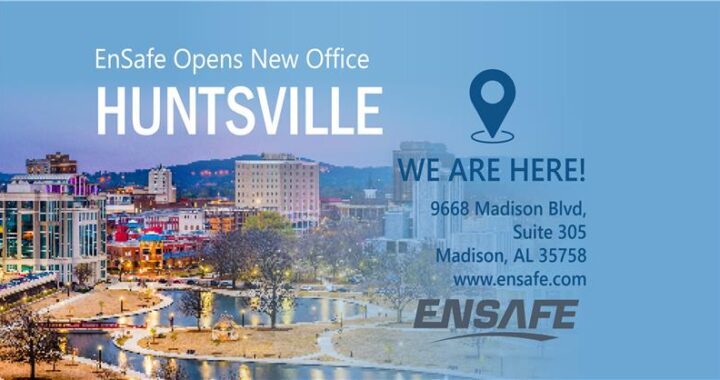Meet EnSafer Kristal Happel, PE! Kristal is a talented engineer with nine years of experience across both public and private sectors. Kristal brings a wealth of knowledge and expertise to EnSafe, specializing in a broad range of engineering services. Her background includes conducting due diligence for potential projects, developing concept plans, and preparing preliminary engineering […]
Continue readingMeet EnSafer and Environmental Scientist Bonnie Nguyen
Meet EnSafer Bonnie Nguyen! Bonnie is an Environmental Scientist based in Nashville, TN. With a strong technical background in 3D visualizations and modeling, she has applied innovative approaches to reconstructing fossils, showcasing her work both locally and internationally. In addition to her expertise in 3D technology, Bonnie has experience in a variety of field sampling […]
Continue readingEnSafe Expands with Huntsville, Alabama Office
EnSafe is excited to share the opening of its newest office, located at 9668 Madison Blvd, Suite 305, Madison, AL 35758. Matt Moore, PG, who will serve as the local Huntsville Business Lead, is spearheading the office launch and business planning. “As a Huntsville native, it is exciting for me to be able to lead […]
Continue readingEPA Adds Nine Additional PFAS to the Toxic Release Inventory
On January 3, 2025, the U.S. Environmental Protection Agency (EPA) announced the automatic addition of nine per- and polyfluoroalkyl substances (PFAS) to the list of 196 PFAS already covered by the Toxics Release Inventory (TRI). Under the framework of the Fiscal Year 2020 National Defense Authorization Act (NDAA), the automatic addition of nine PFAS to […]
Continue readingEnSafe Acquires Resolute Environmental & Water Resources Consulting Services
EnSafe is pleased to announce the acquisition of Resolute Environmental & Water Resources Consulting Services (Resolute). Resolute has been a leading environmental consulting firm in the Southeast for the past 15 years, specializing in power generation and transmission environmental services, hazardous waste assessment and remediation, brownfield programs, and groundwater resources and water supply consulting. EnSafe’s […]
Continue reading



